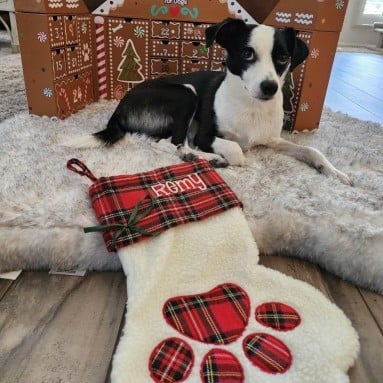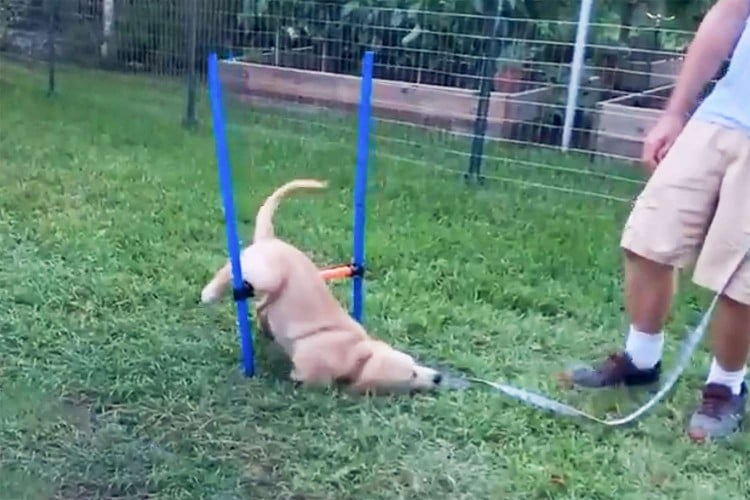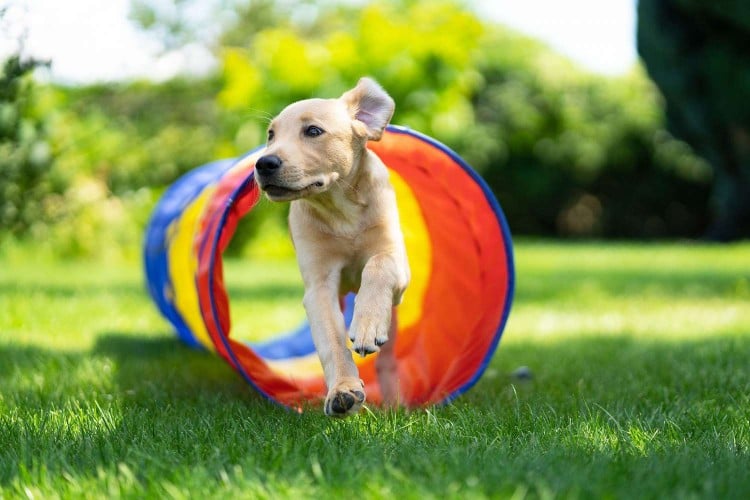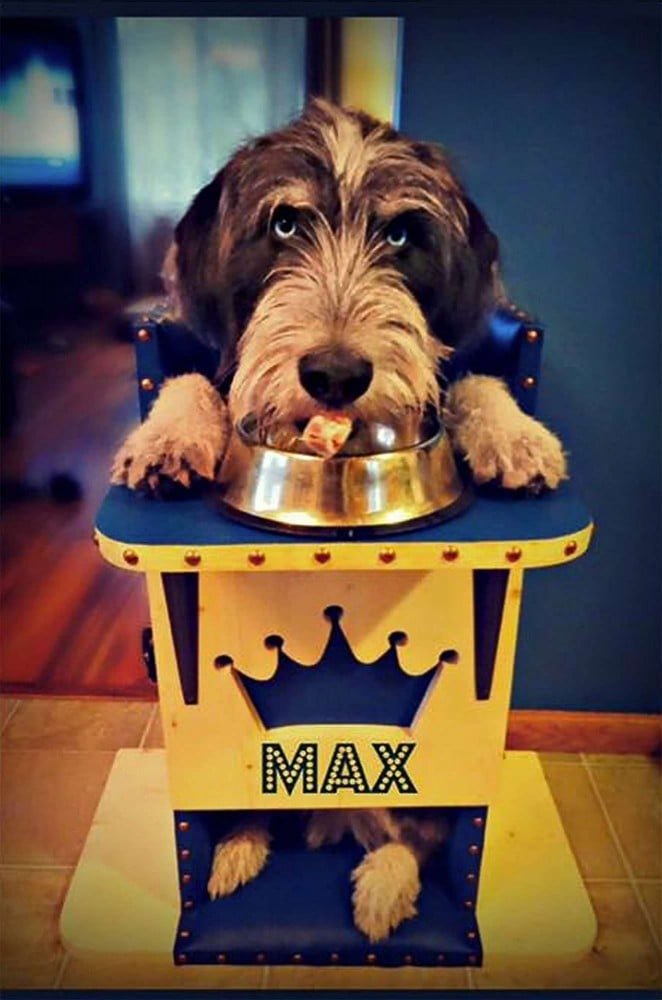Ask a dog parent what kinds of games they imagine playing with their canine bestie and you almost always hear "fetch." Dog parents envision playing in a big grassy field, throwing a ball or launching a frisbee, and their brilliant dog retrieving the toy like a pro. The reality is, not every dog is born with the skill set, or desire, to play fetch and it can take some practice to get the hang of this seemingly simple game.
If you just know in your heart that your dog buddy would love to learn to play a game of "go get it" (as we call it in our house) with a favorite toy but just hasn't mastered the skill yet you can easily teach them using positive reinforcement. Follow these simple steps to teach your dog how to fetch a toy.
Before You Get Started Teaching Your Dog to Fetch
Use Lots and Lots of Treats
No matter what skill, game, or trick you are teaching your dog your most essential and effective training tools are great reinforcers to ensure your dog enjoys the learning activity. A reinforcer is something your dog adores, is quite small, and is super easy to give. Pieces of human food, like cheese or low-sodium lunch meat work really well, as do many types of store-bought dog treats made with only dog-friendly ingredients. In the following steps, the word treat means we are using our dog's favorite food reinforcer.
Teach Your Dog a Marker
A marker (or bridging stimulus) is a signal that tells your dog, in that exact moment, they did something that earned them a reinforcer (the treat). A clicker (used in clicker training) is a great example of a marker. If you don't have a clicker you can use a word like "yes" but be sure to pick one word and use it consistently. In this guide, we will use a clicker and wherever we say "click" you will use your marker.
Click (or mark) the very second you see the behavior you want to reinforce. See the behavior, click, and immediately give a treat.
Teach Your Dog a Drop It Cue
When you want to teach your dog to play a fun game of fetch they need to understand that at some point, they have to not only get the toy and bring it back but drop it so that you can throw it again. Without this, the game of fetch you wanted becomes a game of tug or chase. Teaching your dog a drop it cue is a useful skill that keeps the game of fetch going.
How to Teach Your Dog to Play Fetch in 4 Easy Steps
01 of 041. Build Interest in the Toy
Start off playing in your house so that your dog can engage in the activity without the added distractions of outside. Grab a toy you think your dog will prefer or has already shown interest in either by chewing on it or running around with it in their mouth. Every dog has a preference so it's important to discover what your dog likes best. I prefer to use a rope toy because I can use it to play tug and fetch and my dogs love it. Move the toy around, tossing and pulling it across the floor to grab your dog's attention. If they grab it, let them chew on or tug it a bit, then toss a treat in front of them so they let go of the toy (and eat the treat instead) and you can start again.
02 of 04
2. Practice Tossing the Toy
Now that your dog is interacting with the toy, toss it just a few feet away from you (no more than 5 feet or so). If your dog follows the toy, click and toss them a treat. This helps teach your dog that following the toy in the direction you throw it is not only fun but also rewarding.
Pro Trainer's Tip: The game of fetch eventually becomes self-reinforcing but initially you want to teach your dog that if he picks up the toy in his mouth, he can also earn a tasty treat so go ahead and click and treat whenever he grabs the toy after you toss it even if he doesn't bring it right back.
03 of 04
3. Click and Treat for Bringing the Toy
Next, you want to focus on clicking and treating your dog for returning to you with the toy in their mouth. Some dogs pick up this game quickly and will start to bring the toy back to you as soon as you toss it. Other dogs need more time to figure out how the game works. If this is your dog, toss the toy only a few feet away from you, wait for them to grab it in their mouth and the second they turn towards you, click and toss them a treat. Repeat this until your dog starts to immediately turn around and approach you with the toy in their mouth after each short toss. You can also add a verbal cue, like "bring" as your dog approaches so that they associate the action with a cue.
Pro Trainer's Tip: Click and treat your dog even if they don't bring the toy all the way back to where you are standing. In the beginning of learning this game, bring the toy all the way back to you is not as important as building the behavior of picking up the toy in their mouth and taking steps with it. In the next step you will gradually raise the bar, requiring them to take more steps with it in their mouth before they get a click and treat.
04 of 04
4. Add Distance to the Toy Toss
Once your dog shows they understand that the game includes following the toy after a toss, grabbing in their mouth, and approaching you with the toy, you can begin to add distance to your throws. Toss the toy a little further each time and wait and click and treat until they have completely returned to you with the toy in their mouth.
Pro Trainer's Tip: You can encourage your dog to come towards you from a greater distance by taking a few steps backwards as they approach you. Pat your leg, give them lots of praise, and act excited as they turn to face you and begin taking steps in your direction. This behavior is more likely to keep them excited about coming to you with the toy, making the whole game full of reinforcement opportunities.
Once your dog has mastered the basics of fetch, you can begin to play this game outside in your backyard or a securely fenced area. Make sure you keep the game fun and engaging for your dog by offering toys they seem most interested in versus just assuming they will like a ball or a frisbee.





